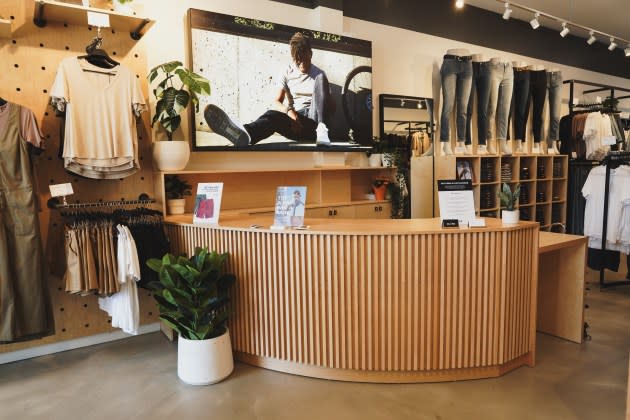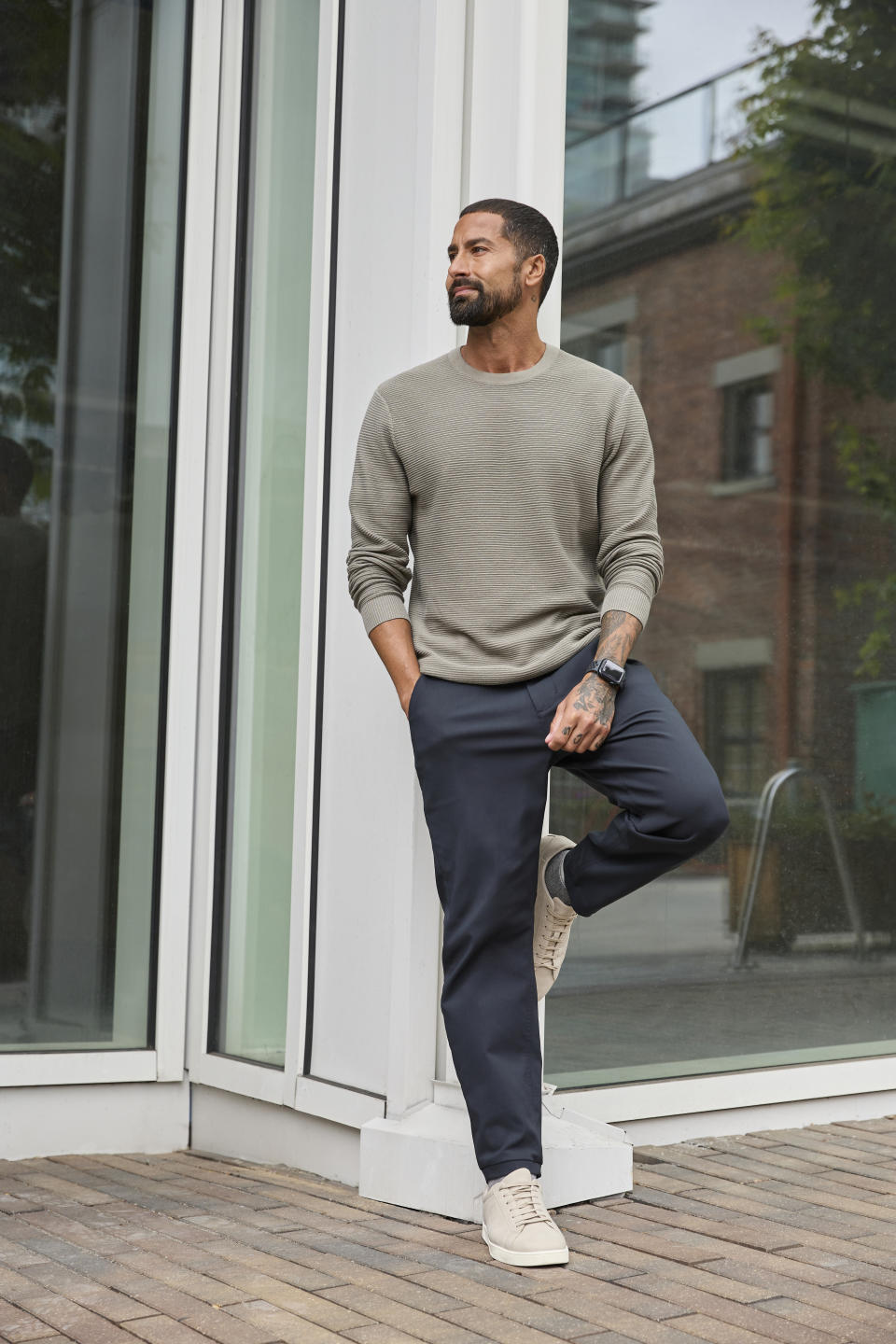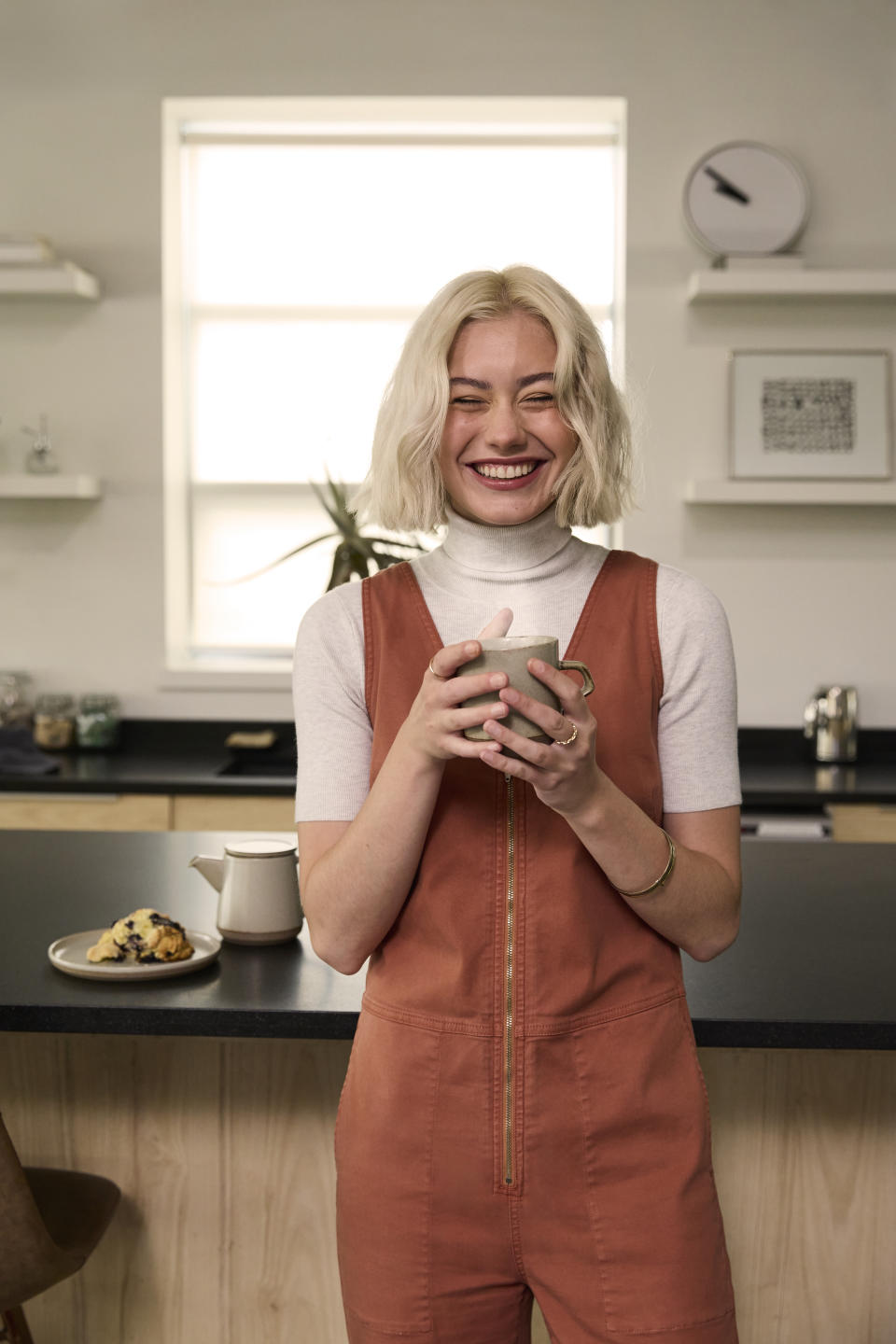Duer Puts a Sustainable Spin on Performance Lifestyle Clothing

At the age of 56, Gary Lenett’s idea of a retirement gig was to open a small store, makes some clothes to stock it and have some fun.
Little did he know that eight years later his retirement project, a performance brand called Duer, would grow into a $50 million company that just opened a Los Angeles store — its second U.S. outpost adding to four flagships already open in Canada.
More from WWD
“You know, sometimes when you let go of things, it just sort of morphs,” said Lenett, who launched his active lifestyle brand in Vancouver in 2015 and now has close to 110 employees.
Lenett is a denim guy. From 1991 to 2006, he ran one of the largest clothing manufacturers in Canada. His specialty was making blue jeans and other denim products for big U.S. brands including Levi Strauss & Co. and Gap Inc.
When manufacturers started using factories in China and other foreign countries, Lenett closed his Pimlico Apparel Co., which employed some 500 people, but continued to develop his own denim brands that included Dish, Desi and Drt.
Duer became his fifth label (he likes brand names that start with D). This time, the concept was not limited to denim. The serial entrepreneur wanted to create a modern lifestyle woven pant for men that had enough stretch to be versatile. People could bike to work in the morning and arrive at the office looking totally put together. Sustainability was all important with mostly natural fibers like cotton and Tencel with a touch of polyester. The idea was to have a pant that would be comfortable but good for the environment. The collection later branched out to womenswear.
“I grew up in the jeans business, not the activewear business,” Lenett said inside his new Los Angeles store located in Larchmont Village, a retail thoroughfare with a Main Street vibe that’s been on the upswing with newly opened stores including Faherty, Beyond Yoga and Velvet Tees by Graham & Spencer. “So, I have a real bias towards cotton and other natural fibers. About 85 percent of our product is natural fiber-based, and our goal is that by 2028, it will be 100 percent. The only reason we put any nylon or polyester in our product is to make sure it isn’t fragile.”
The brand, which emphasizes both style and performance, does 85 percent of its manufacturing in Lahore, Pakistan, with business partner Abid Hafeez, who came on board at the beginning as a 50 percent owner. “We really wanted to build the brand with manufacturing support because it is hard to build a brand with small orders. That factory has grown with us, and we truly don’t have any intermediaries, which helps keep costs down,” Lenett said, noting he and Hafeez have known each other for years.

Duer’s selection of bottoms, which make up 70 percent of sales, retail on average for $119 to $150, with some styles, such as the all-weather windproof and weather-resistant adventure pant, going for $229.
Currently, the No Sweat pant, which feels like a sweat pant, is a typical first purchase for customers, while performance stretch denim is also a popular pick. In the women’s collection, a $159 one-piece, zip-front sleeveless jumpsuit, often worn with a T-shirt, is a standout item. “In the women’s you’ll see a lot of items that are just simple. You can get dressed and get on with more important things,” the apparel CEO said.

When the company first launched in 2015, Duer sold online. These days, about 50 percent of sales comes from e-commerce, and 40 percent is now with wholesale accounts, including REI, Nordstrom, Holt Renfrew and Harry Rosen, as well as 1,000 specialty stores around the world. The rest of the revenue pie is filled in by the company’s small retail fleet that continues to grow.
The company is scouting Canadian locations in Montreal, Ottawa and Edmonton. It is also eyeing more U.S. sites. “We’d like to be at University Village, which is a really great mall in Seattle,” Lenett said. “And we are looking at Austin, Nashville, Washington, D.C. as well as Brooklyn.”
Best of WWD


